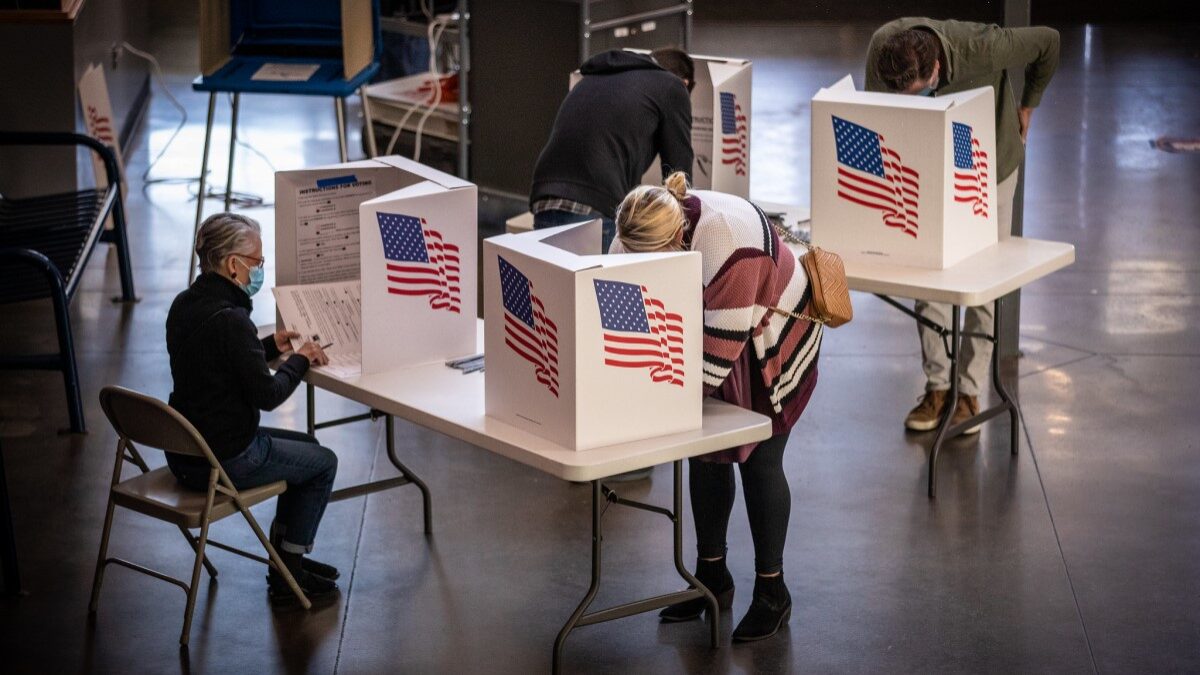In the latest win for election integrity advocates, Washington, D.C. agreed to forfeit data related to the leftist-linked voter roll “maintenance” group known as ERIC, according to a stipulated court order released on Tuesday.
Judge Ana Reyes of the U.S. District Court for the District of Columbia oversaw the settlement that determined that Monica Holman Evans, the executive director of the D.C. Board of Elections (DCBOE), must forfeit data reports that ERIC generates about deceased or potentially deceased individuals on D.C.’s voter registration lists to the Public Interest Legal Foundation (PILF).
As The Federalist has previously reported, the Electronic Registration Information Center, or ERIC, is a widely used voter-roll management organization founded by Democrat activist David Becker that was “sold to states as a quick and easy way to update their voter rolls.” In actuality, the program inflates voter rolls by requiring member states to contact eligible but unregistered residents to register to vote.
In its original lawsuit, PILF alleged that then-DCBOE Executive Director Alice Miller and the elections board violated the National Voter Registration Act (NVRA) by failing to make available specific information within ERIC Deceased Reports. Under the NVRA’s disclosure provision, jurisdictions are required to make “available for public inspection, for a period of at least two years, all records concerning the implementation of programs and activities conducted for the purpose of ensuring the accuracy and currency of official lists of eligible voters.”
The two exceptions to this provision are documents disclosing the identity of the government department through which any specific registrant was registered and those documenting that an individual declined to register to vote.
Prior to its lawsuit, PILF submitted a request to the DCBOE in June 2021, asking for ERIC data from 2019-2021 “concerning registered voters identified as deceased or potentially deceased” and “[a]ll reports and/or statewide-voter-registration-system-generated lists showing all registrants removed from the list of eligible voters for reason of death” for those same years. While Miller provided PILF with a list of deceased individuals removed from the district’s voter rolls from Jan. 1, 2019-June 29, 2021, she withheld “voter identification numbers and dates of birth on the grounds that D.C. law … prohibits disclosure of that information.”
This prompted PILF to sue Miller’s successor on Dec. 6, 2021 to obtain such data.
According to the Tuesday settlement, Evans must turn over most of the data within the district’s 2021 ERIC reports but is permitted to redact an individual’s voter identification number “only if [it] reveals the source of registration.” Data from the Social Security Administration must also be redacted from the disclosed reports and PILF is required to “forgo and dismiss its claim for date of birth information with respect to the Requested Records.”
Evans must forfeit the records within 45 days of Tuesday’s court order, pay PILF $20,000 “as compensation” for legal expenses, and make available the aforementioned data in the future should PILF request it again, “unless Defendant determines that the law governing disclosure has changed.”
“ERIC’s attempt to put up a wall of secrecy in the voter list maintenance process violates federal law,” PILF President J. Christian Adams said in a statement. “Other ERIC member states should take notice that the public has a right to inspect ERIC records.”
Secrecy is just one area of concern when it comes to the Becker-founded organization, however. As The Federalist and others have reported, ERIC enjoys an active relationship with the Center for Election Innovation and Research (CEIR), another Becker-founded group notorious for its interference in the 2020 election.
CEIR, along with the Center for Tech and Civic Life, dumped hundreds of millions of “Zuckbucks” into battleground states across the country. These grants were used to push insecure Democrat-backed voting practices and were heavily skewed toward blue municipalities, effectively making it a giant Democrat get-out-the-vote operation.
In its relationship with CEIR, ERIC submits the voter-roll data it receives from states to the organization. Upon acquiring this information, CEIR then develops “targeted mailing lists and sends them back to the states to use for voter registration outreach.” This process essentially allows CEIR — a partisan nonprofit with a history of left-wing activism — to curate lists of eligible-but-unregistered (and likely Democrat) voters for states to register ahead of elections.
Concerns over ERIC’s partisanship have prompted numerous leading GOP election officials to withdraw their respective states from the organization. This growing list includes jurisdictions such as Virginia, Texas, Iowa, and others.





